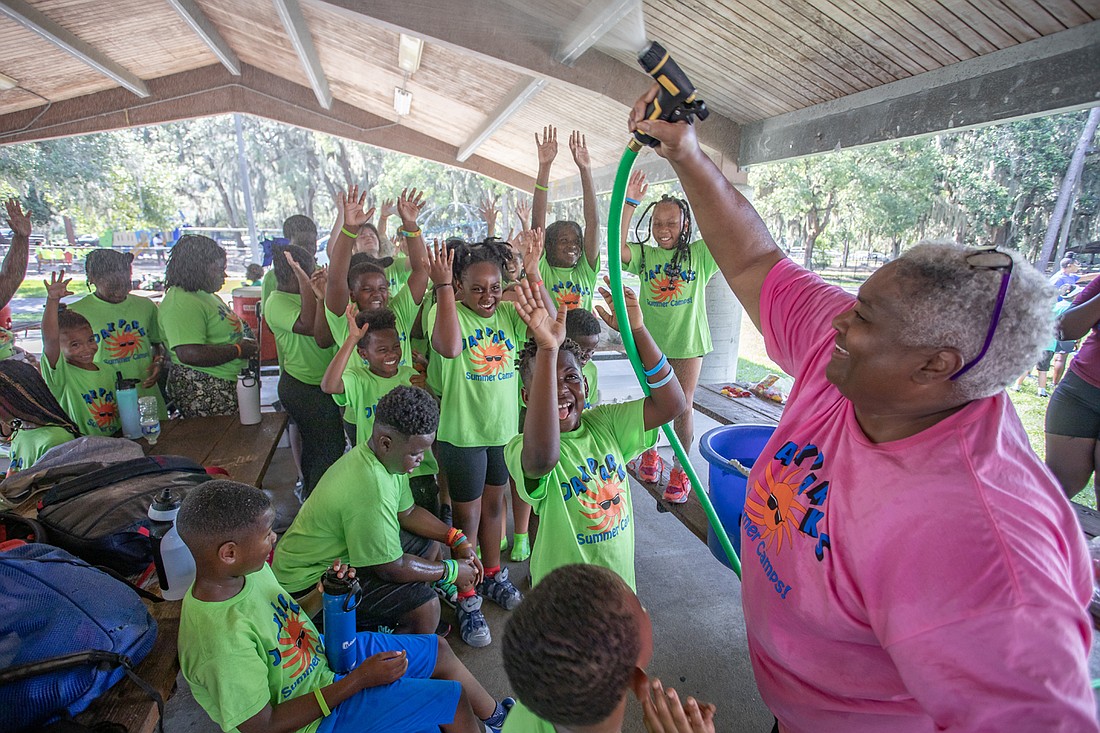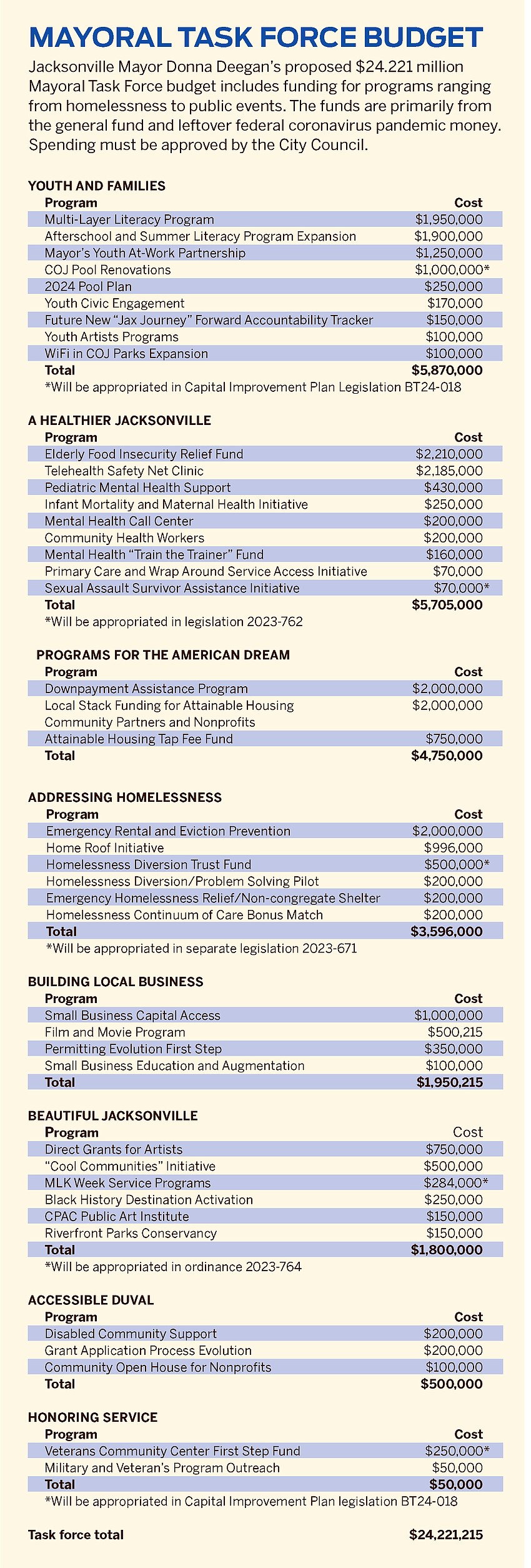
Jacksonville Mayor Donna Deegan’s Mayoral Task Force budget includes more than $24 million for projects and initiatives around the city, including preparing swimming pools for the summer, providing services to the homeless and boosting small businesses.
The funds are primarily from the general fund and leftover federal coronavirus pandemic money that must be spent on qualifying initiatives.
The City Council is expected to vote on about $23 million of the expenditures by year-end.
The administration is drafting the legislation that it wants to file by Nov. 8.
City Council President Ron Salem will then assign the bills to the appropriate committees, where they will be examined and amendments may be offered.
The administration decided it would be an easier sell to submit one major bill and separate those that are derived from other funding sources, said Phillip Perry, chief communications officer.
“We wanted to ease conversations with City Council rather than have 75 different bills,” he said.

The administration has already spoken with several Council members to gauge interest and answer questions, Perry said.
The spending categories came from several community meetings held by the Task Force Committee, comprising subject matter specialists and the general public.
There were seven committees that had 37 committee and subcommittee chairs.
Meetings were attended by more than 600 citizens, Perry said.
The Mayoral Task Force previously was called the Mayor’s Transition Committee. Because Deegan has been in office since July, Perry said “transition” was not the proper term.
Money has been divided among eight categories:
• Youth and Families has $5.87 million aimed at youth work and civic activities and preparing swimming pools for use next summer.
• A Healthier Jacksonville has $5.705 million set aside for infant care, primary care, mental health services and elderly food relief among other uses.
• Programs for the American Dream, which deals with homeownership issues, is set to receive $4.75 million.
• Addressing Homelessness, which includes money to prevent evictions and lessen home insurance burdens, as well as funds to address homeless issues, is set for $3.596 million.
• Building Local Business would receive $1.95 million to provide access to capital, streamline permitting, offer small business education and make funds available to help recruit film and television production in the city.
• Beautiful Jacksonville, which will address public art projects, riverfront parks and Black history, is budgeted for $1.8 million.
• Accessible Duval would receive $500,000 for disabled services and nonprofits.
• Honoring Service, which sets aside money for military and veterans outreach, would receive $50,000.
Deegan and Salem have had several discussions that started in September about the proposed spending legislation, Perry said.
Salem was out of town on a JAX Chamber trip Oct. 30 and unavailable for comment, according to his executive Council assistant.
“Leading up to the final budget, we met with nearly all of the Council members. We got really positive feedback from everybody,” Perry said.
Shared areas of interest include affordable housing, homelessness and small business assistance, he said.
If passed, the administration wants to quickly address issues like repairing and preparing pools for the summer, including an outreach program to hire lifeguards.
Money will also be spent to fund youth work programs and literacy.
Housing remains a focus.
“The affordable housing front is a big priority. We have a few million dollars for rental assistance and eviction protection,” Perry said.
“There are a lot of people who are on the cusp of being evicted because they cannot pay that next month’s rent.”
